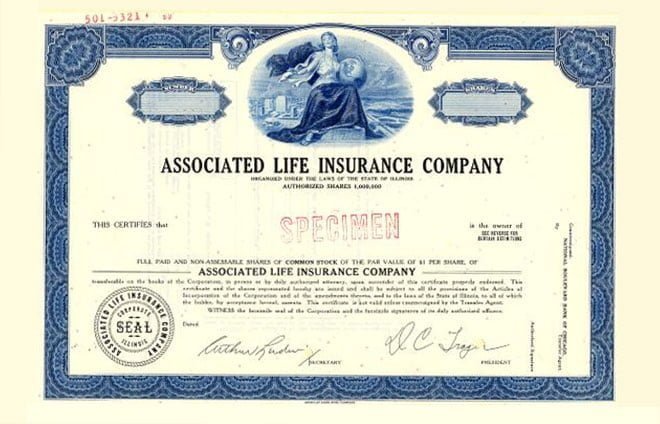Have you ever wondered why insurance remains important even as you enter your 60s and 70s? Many people believe that insurance is only necessary during their younger years, but the reality is quite different.
This article explores the various reasons why insurance is essential for those in their 60s and 70s, covering everything from healthcare costs to legacy planning.
Healthcare Costs and Medical Expenses
As people age, healthcare costs tend to rise significantly. This is due to the increased likelihood of developing chronic conditions and the need for more frequent medical care. According to recent data, the percentage of older adults with both private health insurance and Medicare has decreased, which may affect the quality of medical care and access to providers for this age group.
Health insurance becomes increasingly important as you age to cover these rising medical expenses. Without adequate health insurance, the financial burden of medical bills can be overwhelming. Health insurance helps cover the costs of doctor visits, hospital stays, surgeries, and medications, ensuring that you receive the care you need without depleting your savings.
Common age-related health issues include chronic conditions such as diabetes, heart disease, and arthritis. These conditions often require ongoing treatment and medication, which can be costly. Health insurance can help manage these expenses, making it easier to maintain your health and well-being.
Long-Term Care and Assisted Living
Long-term care refers to a range of services designed to meet the personal and healthcare needs of individuals who are unable to perform everyday activities independently. Assisted living facilities provide housing, personal care, and healthcare services for seniors who need assistance with daily activities but do not require the intensive medical care provided in nursing homes.
The costs of long-term care and assisted living can be substantial. Even the lowest cost of long-term care support can set you back tens of thousands of dollars per year, and these costs are likely to rise. Long-term care insurance can help cover these expenses, providing financial relief and ensuring that you receive the care you need.
Long-term care insurance is an effective way to plan for the cost of your care in the future. It can help cover the costs of assisted living, nursing home care, and in-home care, allowing you to choose the type of care that best suits your needs.
Life Insurance and Legacy Planning
Life insurance comes in various forms, including term life, whole life, and universal life insurance. Each type of policy offers different benefits and coverage options, making it important to choose the one that best fits your needs and goals.
Life insurance is important for legacy planning and covering final expenses. It can provide financial security for your loved ones, ensuring that they are taken care of after you pass away. Life insurance can also be used to cover end-of-life expenses, such as funeral costs, which can be a significant financial burden on your family.
Life insurance can serve as an inheritance for your loved ones, providing them with a financial cushion during a difficult time. It can also be used as cash while you are alive, offering financial flexibility and security.
Disability Insurance and Income Protection
Disability insurance provides income protection if you are unable to work due to a disability. It ensures that you continue to receive a portion of your income, helping you maintain your standard of living and cover essential expenses.
Disability insurance is important for income protection, especially as you age. It can replace a portion of your income if you become disabled and are unable to work, providing financial stability and peace of mind.
For example, if you suffer a stroke or develop a debilitating condition that prevents you from working, disability insurance can help replace your lost income. This financial support can be important in covering medical expenses and maintaining your quality of life.
Final Expenses and Funeral Costs
Final expenses and funeral costs can be surprisingly high, often ranging from $8,000 to $10,000 or more. These costs can include funeral services, burial or cremation, and other related expenses.
Insurance can help cover these final expenses, alleviating the financial burden on your loved ones. By having a policy in place, you can ensure that your family does not have to worry about these costs during an already difficult time.
For example, a life insurance policy can provide the funds needed to cover funeral costs, allowing your family to focus on grieving and healing rather than worrying about financial matters.

Travel Insurance and International Coverage
Travel insurance provides coverage for medical emergencies, trip cancellations, lost luggage, and other unexpected events that can occur while traveling. It is especially important for seniors who may have health conditions that require medical attention while abroad.
Travel insurance is important for international coverage, as it can provide medical and emergency assistance while traveling. This can include coverage for hospital stays, medical evacuations, and other emergency services.
For instance, if you suffer a medical emergency while traveling overseas, travel insurance can cover the cost of medical treatment and transportation back to your home country. This can provide peace of mind and financial protection during your travels.
Home and Property Insurance
Home and property insurance provides coverage for damage or loss to your home and personal belongings. This can include coverage for natural disasters, theft, and other unexpected events.
Insurance is important to protect your assets and property, ensuring that you are financially protected in the event of damage or loss. This can help you recover and rebuild without facing significant financial hardship.
For example, if your home is damaged by a fire or a natural disaster, home insurance can cover the cost of repairs or rebuilding. This can provide financial security and peace of mind, knowing that your home and belongings are protected.
Business Insurance and Retirement Planning
Business insurance includes various types of coverage, such as liability insurance, business continuity insurance, and more. These policies are designed to protect your business and ensure its continued operation in the event of unexpected events.
Business insurance is important for retirement planning, as it can provide financial security and protect your business assets. This can help ensure that your business continues to operate smoothly and that your retirement savings are protected.
For example, liability insurance can protect your business from legal claims, while business continuity insurance can cover the costs of keeping your business running in the event of a disaster. This can provide financial stability and peace of mind as you plan for retirement.

Peace of Mind and Financial Security
Insurance provides emotional benefits by offering peace of mind and financial security. Knowing that you are protected against unexpected events can reduce stress and anxiety, allowing you to enjoy your retirement years.
Financial security is crucial in retirement, as it ensures that you have the resources needed to cover your expenses and maintain your standard of living. Insurance can provide this security, helping you manage risks and protect your assets.
For example, having health insurance can provide peace of mind knowing that your medical expenses are covered, while life insurance can ensure that your loved ones are financially secure after you pass away. These benefits can help you enjoy a worry-free retirement.
Conclusion
In conclusion, insurance remains essential in your 60s and 70s for various reasons, including healthcare costs, long-term care, legacy planning, and more. By considering your insurance options and planning, you can ensure a secure and comfortable retirement. Don’t wait—explore your insurance options today to protect yourself and your loved ones for the future

